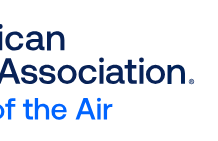RICHMOND — South County Healthy Bodies, Healthy Minds—one of Rhode Island’s 10 Health Equity Zones— has received $2 million from the Substance Abuse and Mental Health Services Administration for the Zero Suicide in Washington County program providing depression care to eliminate suicides in the region, which has the state’s highest suicide rate.
Health Equity zones, funded by the R.I. Department of Health and the Centers for Disease Control and Prevention, are tasked with eliminating health disparities among area communities through healthy strategies. In Washington County, suicide prevalence is an apparent disparity.
Two Washington County towns, Hopkinton and Richmond, rank among the top five state municipalities in suicide rates at 26.6 percent and 23.8 percent, respectively, according to RIDOH.
According to WCCC, from 2010-2014 there were a total of 74 suicides in Washington County. According to RIDOH, Washington County’s suicide rate of 10.8 suicides per 100,000 people is the highest in the state. According to the Healthy Bodies, Healthy Minds, Rhode Island county suicide rates range from 9.5 percent in Bristol County to 8.6 percent in Providence County and 10 percent in Kent County.
Zero Suicide in Washington County will engage major health care institutions in the county and create a leadership team with representatives from health care organizations, suicide survivors and family members. The program will train all staff at health care facilities, coordinate outreach to patients in need, and review suicide attempts to identify trends or opportunities for future prevention efforts.
On Monday morning, Sen. Jack Reed, D-RI, Sen. Sheldon Whitehouse, D-RI, and Rep. Jim Langevin, D-RI met with R.I. Department of Health Director Dr. Nicole Alexander-Scott to announce the grant at Harvest Acres Farm in Richmond.
Of people who die by suicide, 30 percent had recent contact with mental health providers and 45 percent – including 70 percent among older men – had recent contact with primary care providers. Ten percent had visited an emergency department. That is why the World Health Organization recommends that, “health care services need to incorporate suicide prevention as a core component, according to Sen. Whitehouse’s office.
Rob Borkowski is a PBN staff writer. Email him at Borkowski@PBN.com.













